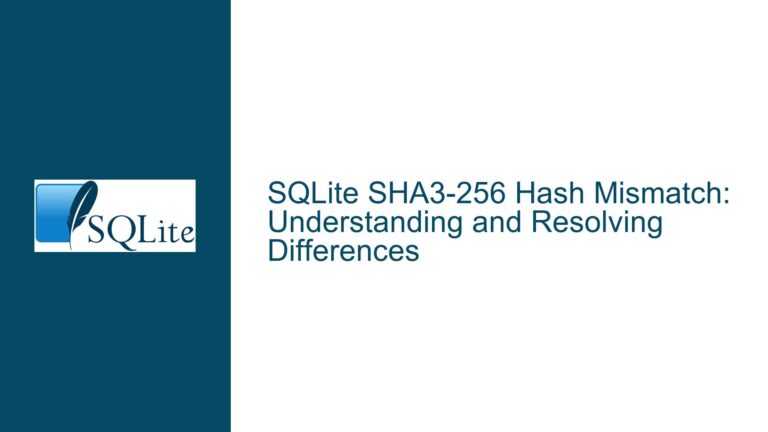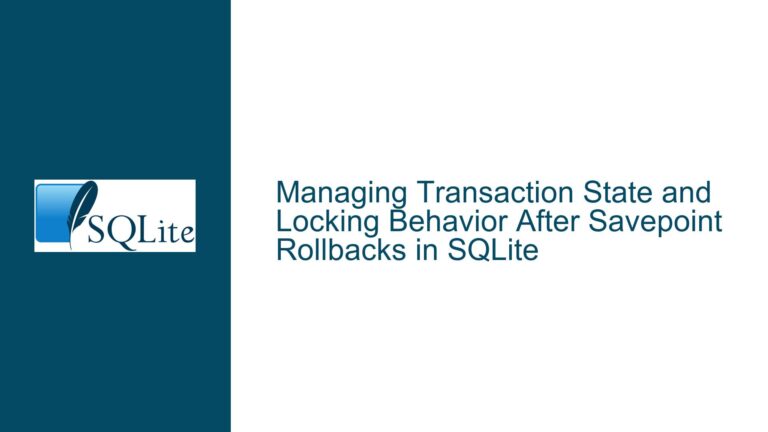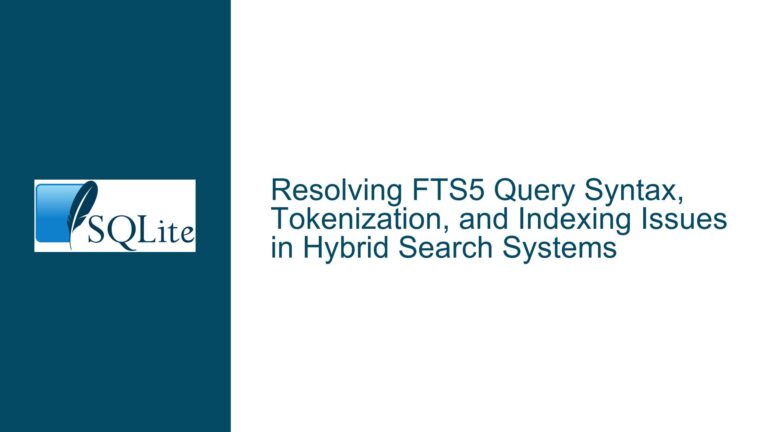Unexpected COUNT(*) Result Due to Indexed Query with Aggregate Subquery Grouping
Incorrect Query Output with Indexed WHERE Clause and Aggregate Subquery The core issue involves a SQLite query returning an unexpected value (1) instead of the logically anticipated result (0) when combining an indexed outer query with a specific type of aggregate subquery. This occurs under precise conditions related to query planner optimizations introduced in SQLite…









